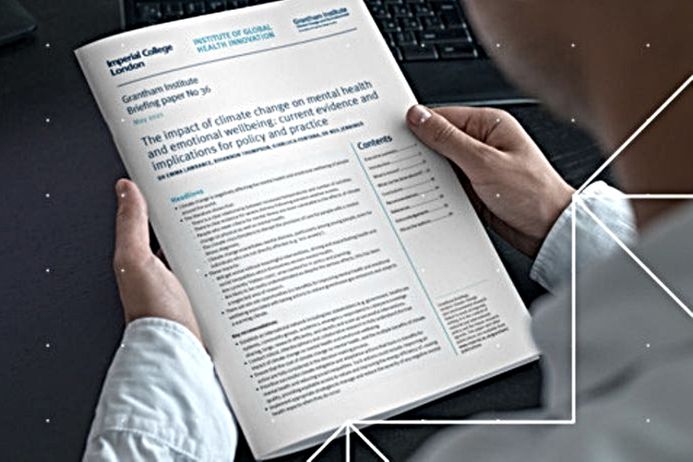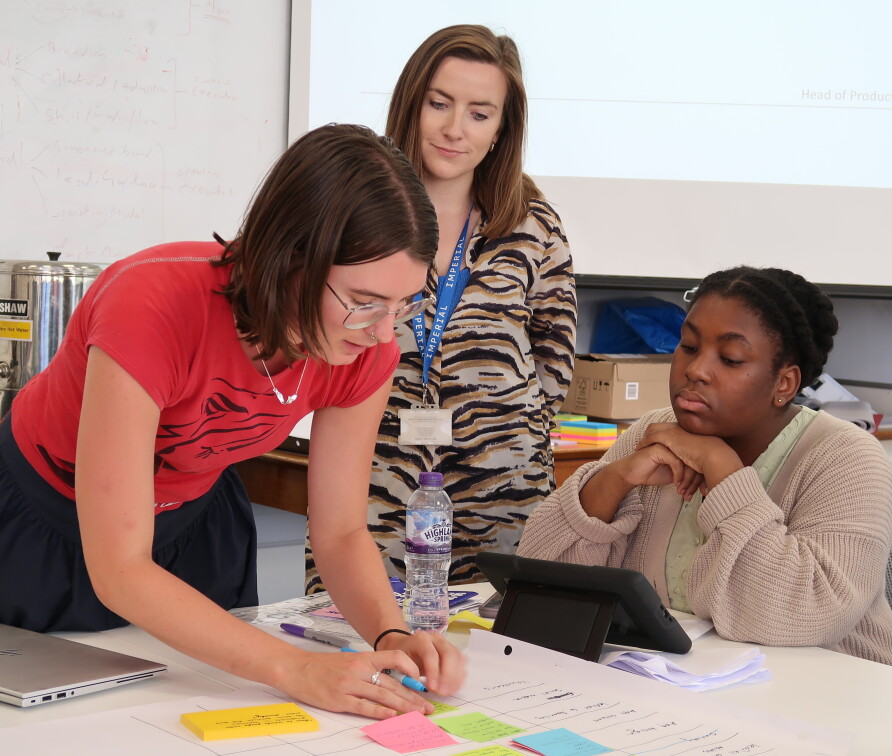Why we research mental health
The world is witnessing a worrying rise in mental health disorders. More young people, in particular, are experiencing emotional disorders such as anxiety and depression, and heightened levels of distress.
Despite growing mental health awareness, many experiencing mental ill-health do not receive the support they need, when they need it, and there is a growing strain on service provision. Additionally, there are knowledge gaps around who is experiencing mental ill-health and why, and how best to respond.
Support delivered digitally, for example, through a phone, has emerged as one potential solution to flexibly meet the growing mental health need and provide targeted support. In order to be effective, new innovations must be evidence-based, designed with those who will be using them, and properly evaluated for clinical impact.
From identifying indicators that could aid early detection and prevention of deteriorating mental health, to understanding how social media and climate change affect mental health, this area requires broad thinking.
Using our expertise in digital health, data science and co-production, we’re looking at ways to help fill in these knowledge gaps and drive evidence-based innovation, so we can transform understanding and treatment of mental health problems.
Highlights from our mental health research

Mental health impacts of climate change
Climate change is an underappreciated mental health emergency. Climate Cares is a team of researchers, designers, policy experts and educators working to understand and support mental health in the current climate and ecological crises.
We enable people, communities and systems to have both the emotional resilience and transformative potential to cope with the climate emergency. We work collectively for a safer climate future that centres mental health and wellbeing, in research, policy and implementation, education and awareness, intervention design.
Climate Cares is a collaboration between the Institute of Global Health Innovation (IGHI) and the Grantham Institute - Climate Change and the Enviornment.
Visit our Climate Cares Centre website.

Exploring the importance of online connections
The pandemic has shifted interactions away from face-to-face and towards digital. Our researchers are exploring which characteristics of online connections can help to improve mental health.
Our recent major review of evidence showed that having a good social connection while accessing online support, for example through virtual therapy sessions or peer support sites, reduced symptoms of depression in young people by as much as 26%, and may also help to improve anxiety and wellbeing. The team also identified a series of key factors that can facilitate having a good social connection online, such as feeling safe and able to be open, which could be used to guide the development of new digital mental health services or assess existing ones.
Detecting deterioration of mental health
We’ve launched a number of studies to find new and effective ways to detect mental health deterioration in different settings and contexts, including the role that technology could play in identifying signs of worsening mental health in young people.
One predictor of deterioration we are exploring through our new SWAY (Sleep disturbance as an early warning sign of suicidality) study is poor sleep during transitions from inpatient psychiatric care. With our collaborators across London and in Israel, we’re analysing existing data to find out whether sleep disturbance could be linked with suicide or suicidal behaviour in people discharged from inpatient care. The programme is also using a wearable device to measure the sleep-wake cycle and find potential links with suicidality in young people.
Using data to improve mental health services
Our partnership with Mental Health Innovations, the digital charity behind 24/7 crisis text line Shout, is helping to develop vital insight into the mental health needs of people in the UK. Working with our collaborators across the College and Shout users, we used Natural Language Processing to analyse hundreds of thousands of conversations between service texters and volunteers using anonymised data from the service. We applied this technique to predict texter risk of suicide, texter demographics, and how helpful they found the conversation.
We also conducted analyses to predict how many texters will contact Shout on a particular day based on external events, and to identify characteristics of helpful and unhelpful conversations. Such insights will help Shout and the mental health sector respond to the large and rising mental distress faced by many, and we will work in partnership to do so.
Our people - get in touch
Prof Paul Aylin, Professor of Epidemiology and Public Health
Dr Phoebe Averill, Research Associate in Patient Safety
Dr Lindsay Dewa, Advanced Research Fellow
Dr Emma Lawrance, Mental Health Innovations Fellow


